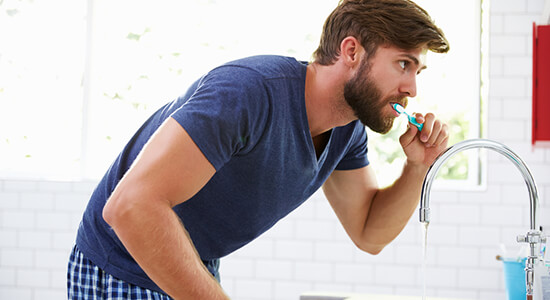Treatment for a cracked tooth depends on the size and location of the crack and your symptoms. These include:
- Sometimes no treatment is recommended if the crack is small and not causing the patient any pain.
- Reducing the height of the tooth or filling slightly or placing a metal band around the tooth if diagnosis is uncertain.
- Repairing the tooth with a filling material and reducing the height of the remaining tooth to protect it.
- Placing a crown, or onlay on the tooth to protect the tooth from further damage
- Root canal treatment if the nerves and pulp are involved
- Extraction of the tooth if the crack is severe and the tooth cannot be saved.
The best treatment is to have a suspected cracked tooth checked by your dentist as early as possible.


